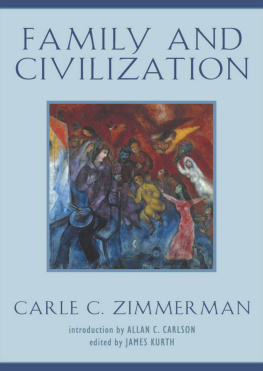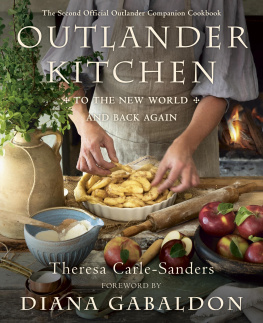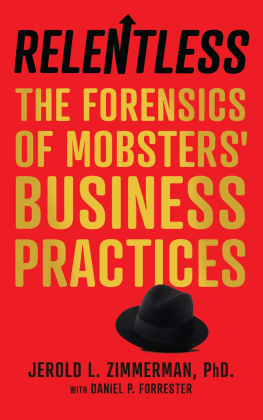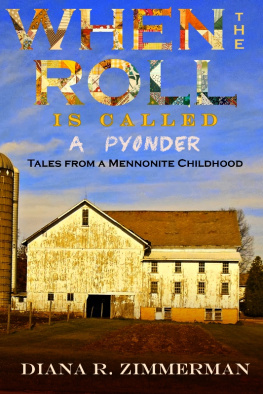Carle Zimmerman - Family and Civilization
Here you can read online Carle Zimmerman - Family and Civilization full text of the book (entire story) in english for free. Download pdf and epub, get meaning, cover and reviews about this ebook. publisher: Open Road Integrated Media, genre: Religion. Description of the work, (preface) as well as reviews are available. Best literature library LitArk.com created for fans of good reading and offers a wide selection of genres:
Romance novel
Science fiction
Adventure
Detective
Science
History
Home and family
Prose
Art
Politics
Computer
Non-fiction
Religion
Business
Children
Humor
Choose a favorite category and find really read worthwhile books. Enjoy immersion in the world of imagination, feel the emotions of the characters or learn something new for yourself, make an fascinating discovery.
- Book:Family and Civilization
- Author:
- Publisher:Open Road Integrated Media
- Genre:
- Rating:3 / 5
- Favourites:Add to favourites
- Your mark:
- 60
- 1
- 2
- 3
- 4
- 5
Family and Civilization: summary, description and annotation
We offer to read an annotation, description, summary or preface (depends on what the author of the book "Family and Civilization" wrote himself). If you haven't found the necessary information about the book — write in the comments, we will try to find it.
Family and Civilization — read online for free the complete book (whole text) full work
Below is the text of the book, divided by pages. System saving the place of the last page read, allows you to conveniently read the book "Family and Civilization" online for free, without having to search again every time where you left off. Put a bookmark, and you can go to the page where you finished reading at any time.
Font size:
Interval:
Bookmark:

FAMILY AND CIVILIZATION
Carle Zimmerman
edited by James Kurth
with an introduction by Allan C. Carlson

Wilmington, Delaware
INTRODUCTION
N O PROBLEM IS MORE INTERESTING and vital to us than that of the family. The child is born into a family and sees the world through its eyes. His introduction to civilization is through the family. At first he is only a child in a system of social relations consisting of a unity of husband and wife, parent and child. Later he learns that there are relatives (grandmothers, aunts, uncles, cousins, etc.) who are closer to him than other people. In time he acquires the idea of friends, and then of strangers. Then he learns that he secures his status through his family. He is an American, an Englishman, a Chinese because he is born into a parental unit that belongs to those nationalities. His parents belong to a certain community and so does he, and they are subject to its rules and privileges. He can and must go to the schools of his community.
As the child grows up, he founds a family of his own where the roles are reversed; instead of remaining a child, he becomes a husband (wife), parent, leader, breadwinner, responsible person, disciplinarian, and status conferrer. In the course of a lifetime, most people play changing roles within the organization known as the family. A broad and philosophical knowledge of the meaning of this to the individual and to society is one of the first requisites of understanding the society of which he is part.
In recent years there has been considerable discussion of the family. Among serious subjects, none are given as much attention as family, government, and religion. No one of these three topics can be discussed without the other. No government or religion is without decided views on the family, and no family can get along without day-by-day contact with the rules, regulations, and ideas of the contemporary government and religion concerning what is proper, correct, and justifiable family behavior.
This recent discussion has been concerned with family problems, the decline of familism, the evolution of the family, the origin of the family, and the changing functions and future of the family. It is said that a new type of family has now arisenthe conjugal family. This is supposed to be a family type in which a married pair abstain from having children, or at least give most of their time and attention to their marriage and little or none to the parent-child relationship.
However, this has not always been so. In other times and places familism has had different connotations from those set forth today. Consequently, we have many books on the family that set forth its history, its origins, its functions in different societies, and its present state. This literature, running into thousands of volumes and written in every language in which the study of social science has been attempted, offers many explanations, interpretations, histories, pseudo-histories, and arguments, but little or no agreement concerning the family.
Family Problems in Other Societies
This disagreement over the family is not new. On the contrary, it is one of the oldest arguments of history, as a few examples will show. At the height of the old Roman Empire in Western Europe, from the first to the third centuries of our era, the family relationship was a free one like ours; there were many conjugal marriages such as have recently become popular and are now highly recommended in many circles. At that time under Roman law, divorces were easy and frequent. People did not have many children. The armies were recruited from the barbarians on the edge of the empire. The government offered rewards to people for having children and tried to penalize those who did not by higher taxes, withdrawal of privileges, and so on. There were forces in public life that favored familism and forces that did not. A marriage was at most only a civil contract that had many elements of private contract about it; the latter depended on the kind of marriage chosen. A man who wanted a binding civil contract chose the dignitas type of marriage. If he wanted a looser relationship which meant that the children, if any, remained with the mothers family and never received rights from the father, he chose the more flexible form called concubinatus. A woman who married according to dignitas was supposed to become a mother, and the family consisted of husband-wife, parents-children, and inner versus outer relatives. In the dignitas marriage, the woman left her own home more completely and cleaved to her husband. However, she brought with her a dower or marriage portion, and her family retained an interest in it; consequently the family was always to some extent tied up with both paternal and maternal relatives. The child of such a marriage came under the potestas, or power, of the father, was given his name, and became his legitimate heir.
The concubinatus marriage, although a much looser relationship, was still a real marriage, subject to legal regulation and social consequences. However, these regulations were not so broad, and the social consequences were not so great, as in the dignitas marriage. The child remained with the mother and inherited from her; in the later period, by means of special legal forms the child could be adopted by his blood father and given the standing of one born of a dignitas marriage.
And so the difference of opinion continued through the latter days of the Roman Empire. The conservative forces of the state favored marriages of dignitas which would produce children to replenish the number of citizens born of Roman parents. Some of the people preferred marriages of dignitas, with or without children, and some marriages of the concubinatus type, with or without children.
Toward the last days of the Roman Empire a new force entered into this argument, the Christian church. This religious organization called the mores of the Roman family decadent and demanded reform after reform. The church recognized marriages of one kind only, dignitas. It insisted on the reform of the Roman dignitas marriage to make it a sacred and lasting union. It was opposed to divorce and every other form of demoralization throughout the Roman Empire. At first the Christians were severely prosecuted for impiety toward the Roman gods; every time a calamity occurred, it was the fashion to blame the difficulty on the Christians and to persecute some of them rigorously. But later, some of the emperors were converted and Christianity became a legal as well as a moral force. Then came a period when disciplinary legislation regarding the family was forced upon the people by the Christian emperors.
Romanism decayed, however, and many smaller regional governments replaced the central government that had ruled over most of civilization. A new force came into powerthe emperors chosen by and descended from the barbarians of northern Europe, who were migrating to the districts of the old Roman Empire. Into these small states came a new type of family, the barbarian, an organization with an outlook entirely different from that of the Roman dignitas and concubinatus families. Marriage, to the barbarians, was not a private or a civil contract. To them it was a unity of family, a blood relationship, involving rights and duties far transcending anything Roman civilization had known for almost a thousand years. Marriage among the barbarians meant that the members of a family agreed to protect their relatives in case they committed crimes, to aid them when someone did an injury to them, to help financially if they had to pay a composition or
Font size:
Interval:
Bookmark:
Similar books «Family and Civilization»
Look at similar books to Family and Civilization. We have selected literature similar in name and meaning in the hope of providing readers with more options to find new, interesting, not yet read works.
Discussion, reviews of the book Family and Civilization and just readers' own opinions. Leave your comments, write what you think about the work, its meaning or the main characters. Specify what exactly you liked and what you didn't like, and why you think so.










